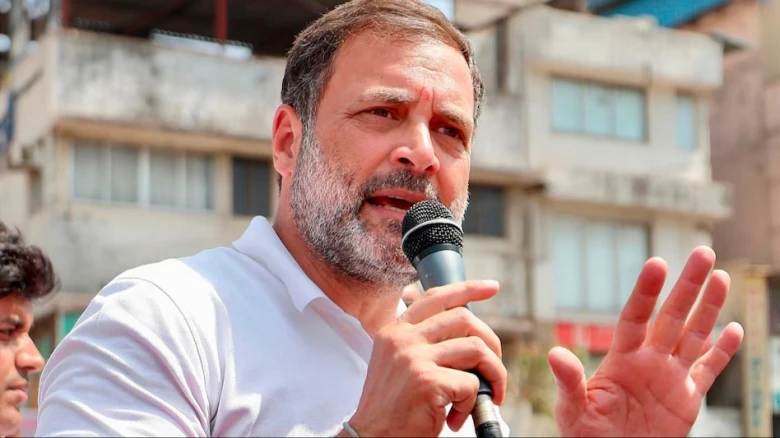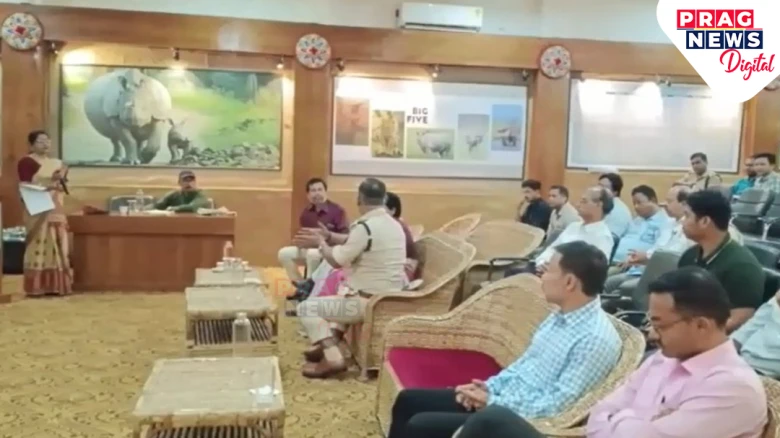The Congress leader's critique extended to Prime Minister Narendra Modi's governance, where he highlighted policies...
Digital Desk: Congress leader Rahul Gandhi concluded his monumental 10,000-kilometer march on Sunday with a stirring speech in Mumbai, underscoring the resilience of India's Constitution and the intrinsic values of love and respect in Indian society.
Addressing a crowd at the historic Gokuldas Tejpal Auditorium, where the Congress party was formed in 1985, Gandhi affirmed, "There is nothing to worry...they (BJP and RSS) do not have the guts to change the Constitution…truth and Hindustan is with all of us."
Gandhi's Bharat Jodo Yatra and Bharat Jodo Nyay Yatra, spanning from September 7, 2022, to March 16, 2024, symbolized a journey of introspection and connection with the people of India. Reflecting on his odyssey, Gandhi emphasized the significance of empathy in fostering social change. He lamented the growing wealth disparity and injustices faced by various segments of society, including youths, farmers, and laborers.
The Congress leader's critique extended to Prime Minister Narendra Modi's governance, where he highlighted policies favoring the wealthy elite over the marginalized. Gandhi's message resonated with the public as he called for inclusive decision-making processes and equitable distribution of resources. He questioned the logic of waiving loans for billionaires while farmers continue to struggle under financial burdens.
Central to Gandhi's narrative was the essence of empathy in building cohesive movements. He stressed the importance of listening to the voices of the people, terming it as the "voice of Hindustan." Gandhi's assertion that empathy transcends individual interests and political affiliations echoed through his call for a united front against injustice and inequality.
The significance of Gandhi's march was further underscored by his visit to Mani Bhavan, a site entrenched in the history of Mahatma Gandhi's activism. Accompanied by his sister Priyanka Gandhi and joined by Tushar Gandhi, the great-grandson of Mahatma Gandhi, Rahul Gandhi paid homage to the legacy of non-violent resistance and grassroots mobilization.
Throughout his journey, Gandhi encountered diverse perspectives and challenges, reaffirming his belief in the enduring values of truth, love, and respect embedded in India's cultural fabric. He drew parallels between India's struggle for independence and the ongoing fight against injustice, citing the inspiration drawn from global leaders like Nelson Mandela.
As Gandhi concluded his marathon march, his words reverberated with hope and determination, encapsulating the spirit of a nation striving for a more equitable and inclusive future. His message of empathy, constitutional resilience, and collective action serves as a beacon for those committed to building a society founded on principles of justice and compassion.








Leave A Comment